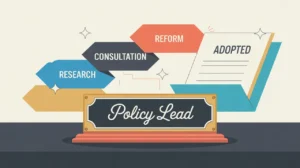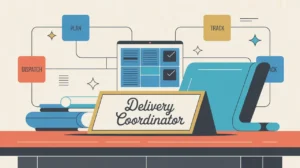What Does the Implementation Coordinator Role Involve?
An implementation coordinator is responsible for supporting the planning, coordination, and execution of programs, projects, or initiatives to ensure they are delivered effectively and on time. This role focuses on organizing workflows, liaising between teams, monitoring progress, and resolving logistical or operational challenges that arise during implementation. It typically sits within program management, operations, or delivery functions. In nonprofits and social enterprises, implementation coordinators are essential for turning strategic plans into actionable steps that produce tangible results.
At What Level does this Role Operate?
Mid Level: This role typically reports to an implementation lead, program manager, or director of operations. It involves operational oversight, coordination responsibilities, and active problem solving within project and program delivery structures.
Relative Employability: Implementation coordinator roles are widely found across nonprofits, social enterprises, and mission-driven enterprises. Organizations rely on them to bridge the gap between planning and execution, making them consistently valuable across sectors and program types.
Relative Pay Scale: Implementation coordinator roles sit within mid-level pay bands, reflecting their operational responsibilities, cross-team coordination functions, and importance in ensuring successful delivery.
What are the Key Responsibilities and Activities?
- Coordinate day-to-day implementation activities for programs, projects, or initiatives
- Develop and maintain implementation timelines, work plans, and task lists to ensure progress toward milestones
- Serve as a liaison between teams, departments, or external partners to ensure alignment and information flow
- Monitor implementation progress, flagging risks, delays, or issues to relevant stakeholders for resolution
- Support the preparation of reports, presentations, and documentation for internal and external audiences
- Manage logistics, resources, and scheduling to support smooth implementation processes
- Track program data, deliverables, and performance indicators to ensure accountability
- Contribute to refining implementation processes and improving operational efficiency
What Core Competencies and Qualifications are Needed?
Required Qualifications and Experience
The following reflect common qualifications and experience expected for this role, while recognizing that pathways may vary by context, organization, and region.
- Academic background in project management, business administration, public administration, or related fields, or equivalent professional experience
- Experience in project coordination, program delivery, or operations roles
- Strong organizational skills and the ability to manage multiple priorities simultaneously
- Excellent communication and interpersonal skills for working across diverse teams
- Familiarity with project management tools and performance tracking systems
- Problem-solving mindset and attention to detail
Key Competencies
- Project and program coordination
- Timeline and workflow management
- Stakeholder communication and liaison skills
- Operational problem solving
- Data tracking and reporting
- Logistical planning and resource coordination
How are AI and Automation Shaping this Role?
An AI-native implementation coordinator will look to AI and automation to enhance project tracking, optimize workflows, and support real-time decision making. They can use AI tools to generate project plans, identify risks based on performance trends, and automate task reminders or progress reports. Automation can help integrate data from multiple systems, track implementation milestones, and streamline communications between teams. By leveraging these tools, implementation coordinators can manage complex delivery processes with greater precision and speed.
What Career Pathways and Transferable Skills are Associated with this Role?
Implementation coordinator roles can lead to positions such as implementation lead, program manager, operations manager, or strategy manager. The skills developed in coordination, project management, problem solving, and stakeholder engagement are highly transferable across nonprofits, social enterprises, and the private sector. This role provides a strong foundation for advancing into leadership roles that oversee strategic execution and operational delivery.







